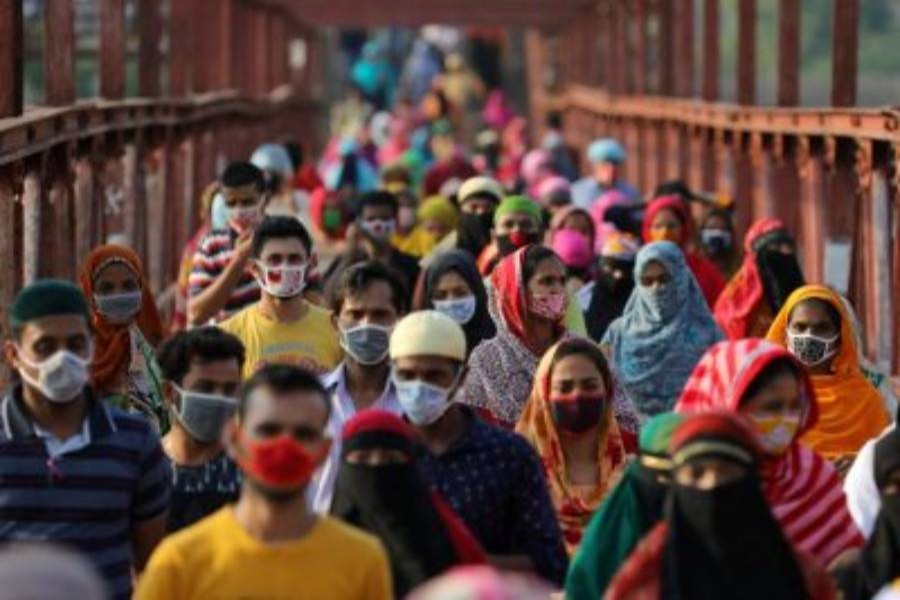
Published :
Updated :

About 49 per cent of the pandemic-hit internal migrants returned to their roots last year for massive job cuts, non-payment of wages and decreased salary.
According to a SANEM survey, 14 per cent of the migrants lost jobs in the March-December period. Those who lost jobs were mostly from craft and allied trade.
However, 37.3 per cent of self-employed and 34.2 per cent of waged people have not been able to recover their income till now because of the Covid-19 fallout.
The findings of 'Covid-19 Impact on Labour Market and Migration: Results from SANEM's Primary Survey' were shared during a webinar on Wednesday.
The South Asian Network on Economic Modeling (SANEM) conducted the study from January to February 2021.
Of the respondents, 2,845 households were non-migrants, 230 internal migrants and 273 international migrants.
The survey is based on the SANEM-GED's nationwide comprehensive household survey that was done on 10,500 households back in 2018.
Among the self-employed, people involved in transport sector are the highest 57.6 per cent who could not recover income followed by 48.6 per cent from hotels and restaurants and 42.2 per cent from manufacturing.
On the other hand, the maximum 55.3 per cent of salaried people could not recover their income followed by 40.5 per cent from construction and 38.4 per cent from agriculture, forestry and fishing.
The highest 12.94-per cent unemployment rate was identified in Barishal division and the lowest 3.23 per cent in Khulna.
The findings also showed that about 20-per cent international migrants lost jobs mainly in craft and trade and elementary occupation.
Proportionately, workers from Middle-Eastern and East Asian countries reported highest job losses. Of them, 5.0 per cent returned to Bangladesh.
On the other hand, those who planned to migrate abroad cited a halt in visa processing and increased charges of recruiting agencies as main obstacles.
They also cited reasons like increased travel expense, complexity in visa procedure and ban on recruitment.
SANEM research director Dr Sayema Haque Bidisha presented the key findings while executive director Dr Selim Raihan moderated the programme.
As a panellist, Policy Research Institute of Bangladesh executive director Dr Ahsan H Mansur said it was a good sign that most of the workers have returned to work.
But sectors like aviation, hotel and tourism are still to get back their normal flow, he observed.
The fresh 2.0-million youths have already entered the labour force. So, unemployment rate gets deeper. "If investment doesn't pick up, how will the newcomers get space in jobs?" he questioned.
Responding to a query, Prof Tasneem Siddiqui, founding chair of Refugee and Migratory Movements Research Unit, said inward remittance would not see a major fall in future as the stock of workers is still high abroad.
It is unknown how many workers are staying in different countries without valid papers. But they are remitters.
This is one of the vital reasons behind the negligence in forming a proper policy to address problems of this sector, added Prof Siddiqui.
But this sector needs proper attention to ensure sustainability. Centre for Policy Dialogue research director Dr Khondaker Golam Moazzem and ILO Bangladesh country director Tuomo Poutiainen also spoke.


 For all latest news, follow The Financial Express Google News channel.
For all latest news, follow The Financial Express Google News channel.